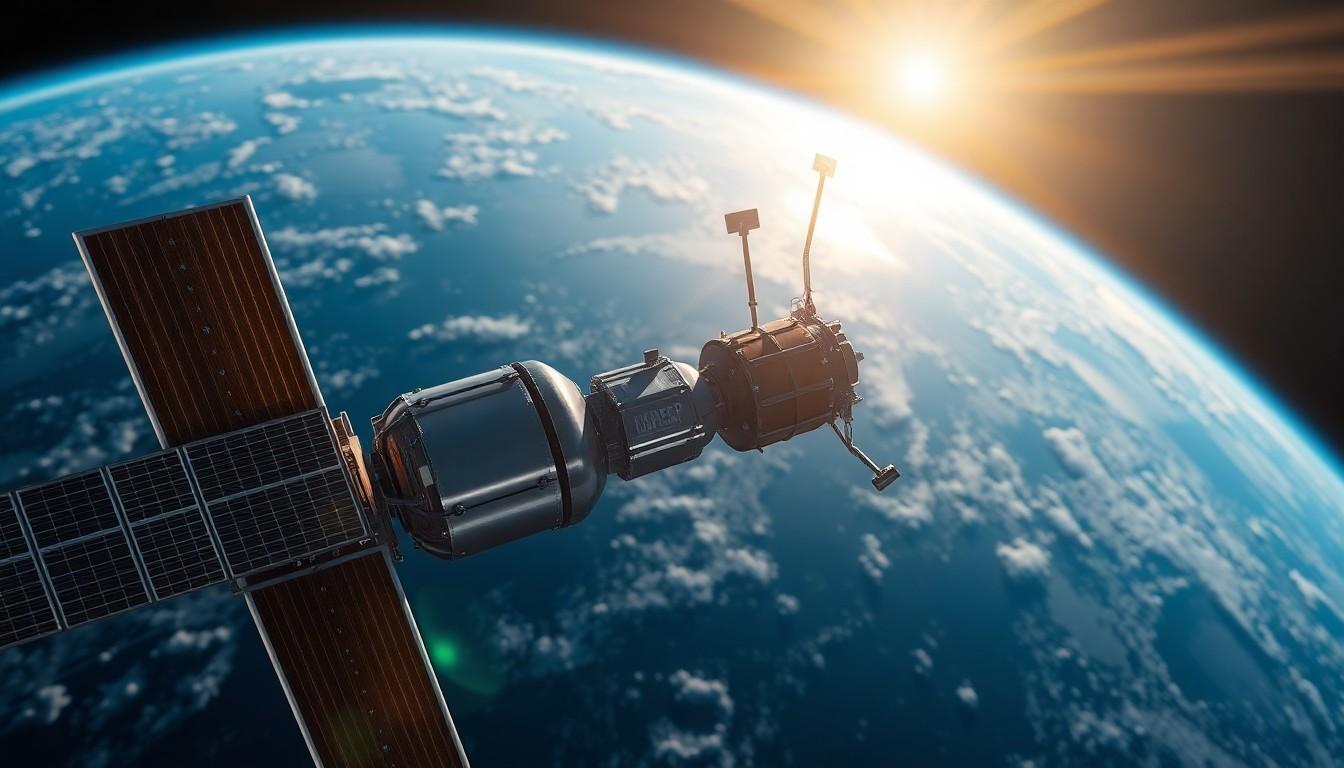When you think of space exploration, you might picture astronauts floating in zero gravity or rockets blasting off into the great unknown. But what if we told you that the wonders of the universe have a direct impact on your everyday life? Yes, those shiny satellites orbiting Earth are doing more than just looking pretty—they’re actually improving the quality of life right here on the ground.
Table of Contents
ToggleOverview of Space Exploration and Technology
Space exploration and technology contribute significantly to improved quality of life on Earth. Satellites orbiting the planet provide crucial data for various sectors. Weather forecasting relies on satellite information, enabling timely alerts for natural disasters like hurricanes or floods. Communication technologies have advanced because of satellite systems, making global connectivity possible.
Health care benefits as well, with medical imaging technologies initially developed for space missions now widely used in hospitals. Processes such as MRI and CT scans enable accurate diagnostics, contributing to better patient outcomes. Additionally, telemedicine, fueled by satellite communications, allows rural and remote areas to access specialized medical care without traveling long distances.
Agricultural practices also see advancements from space technology. Satellites monitor crop health and soil conditions, allowing farmers to make informed decisions about irrigation and pesticides. This data-driven approach increases crop yields and promotes sustainable practices.
Environmental monitoring systems play a key role as well. Satellites track climate changes, deforestation rates, and pollution levels. Such information aids governments and organizations in crafting policies to mitigate adverse environmental impacts.
Transportation logistics benefit from satellite navigation systems. Businesses optimize routes for efficiency and fuel savings, resulting in reduced operational costs. Effectively, space technology drives innovation across multiple sectors, shaping everyday life in essential ways.
Impact on Daily Life

Space exploration significantly improves daily life through various technological advancements. Many sectors benefit from these innovations, enhancing overall quality of life.
Health and Medicine Advancements
Medical technologies originating from space missions transformed healthcare. Magnetic resonance imaging (MRI) and computed tomography (CT) scans emerged from research conducted for space exploration. These imaging techniques ensured accurate diagnostics and enhanced patient care. Telemedicine, supported by satellite technology, connects healthcare professionals and patients in remote areas. This connectivity enables access to specialized medical services, improving health outcomes for underserved populations.
Communication Improvements
Communication technologies evolved due to the advancements in satellite systems. Satellites facilitate global communication, allowing real-time connections between individuals and businesses. This system supports international collaboration, breaking down geographical barriers. Enhanced communication also assists in emergency response, enabling quick dissemination of crucial information during crises. Many rely on satellite-based services for navigation and streaming, illustrating the broad impact of space technology on everyday interactions.
Example: Satellite Technology
Satellites play a vital role in enhancing life on Earth through various applications. Their impact spans across weather forecasting and disaster management.
Weather Forecasting
Data from satellites revolutionizes weather forecasting. Meteorologists utilize satellite imagery to observe atmospheric conditions, providing accurate predictions about storms, temperatures, and precipitation. This technology allows forecasters to issue timely warnings, helping communities prepare for extreme weather events. For instance, NOAA’s Geostationary Operational Environmental Satellites (GOES) provide critical real-time data that supports severe weather alerts. The accuracy of these forecasts has significantly reduced loss of life during storms and increased safety for millions.
Disaster Management
Satellite technology is crucial for disaster management, enabling rapid responses to emergencies. Satellite imagery assists authorities in assessing damage after natural disasters like hurricanes and earthquakes. This instant access to information facilitates effective coordination among emergency services. For example, during the aftermath of Hurricane Katrina, satellite data helped track flooding and identify areas needing immediate assistance. Additionally, communication between agencies is streamlined, improving resource allocation and responses during crises. The use of satellites in these scenarios ultimately saves lives and enhances recovery efforts.
Economic Benefits of Space Technology
Space technology generates significant economic advantages across various sectors. Industries leverage satellite data for enhanced decision-making, resulting in improved efficiency and cost-effectiveness. For instance, agricultural businesses utilize satellite imagery to monitor crop health, increasing yield and revenues.
Investment in space exploration fuels job creation, contributing to local and national economies. The aerospace sector employs over 1 million workers in the U.S., directly impacting economic growth. New technologies developed for space missions often find civilian applications, leading to further innovations in fields like telecommunications and materials science.
Furthermore, satellite navigation systems support transportation industries by optimizing routes, which reduces fuel consumption and expenses. Commercial shipping companies employ these technologies to increase the efficiency of supply chains, driving down costs for consumers.
Healthcare also experiences economic improvement through advancements derived from space technology. Telemedicine enables remote consultations, saving patients travel time and healthcare facilities costs. Hospitals equipped with medical imaging technologies improve diagnostics, enhancing patient outcomes while reducing overall healthcare expenditures.
Environmental monitoring technologies help governments track pollution and resource depletion, facilitating policies that promote sustainable practices. The economic benefits from these improvements extend to tourism and recreation, where satellite data enhances outdoor experiences while ensuring safety.
Finally, international collaboration in space exploration fosters economic partnerships, boosting trade and investment opportunities. Countries can partner on joint missions, sharing knowledge and reducing individual costs while achieving technological advancements. The combined efforts lead to collective economic growth, showcasing the far-reaching impacts of space technology on everyday life.
Space exploration and technology have undeniably transformed everyday life in countless ways. The advancements derived from satellite systems not only enhance communication and weather forecasting but also revolutionize healthcare and agriculture. These innovations lead to improved safety and efficiency, directly impacting communities around the globe.
As society continues to embrace the benefits of space technology, it becomes increasingly clear that its influence extends far beyond the stars. The ongoing investment in space exploration promises to yield even more breakthroughs that will further enrich lives, demonstrating that the pursuit of knowledge in space is indeed a catalyst for progress on Earth.





